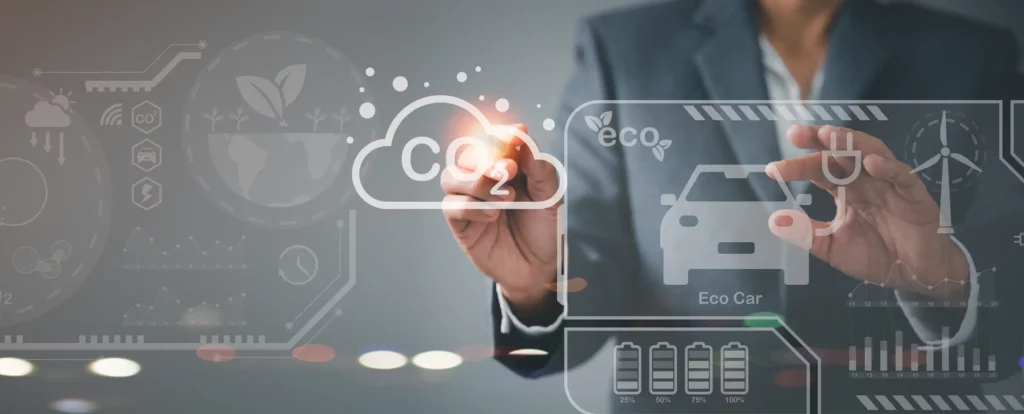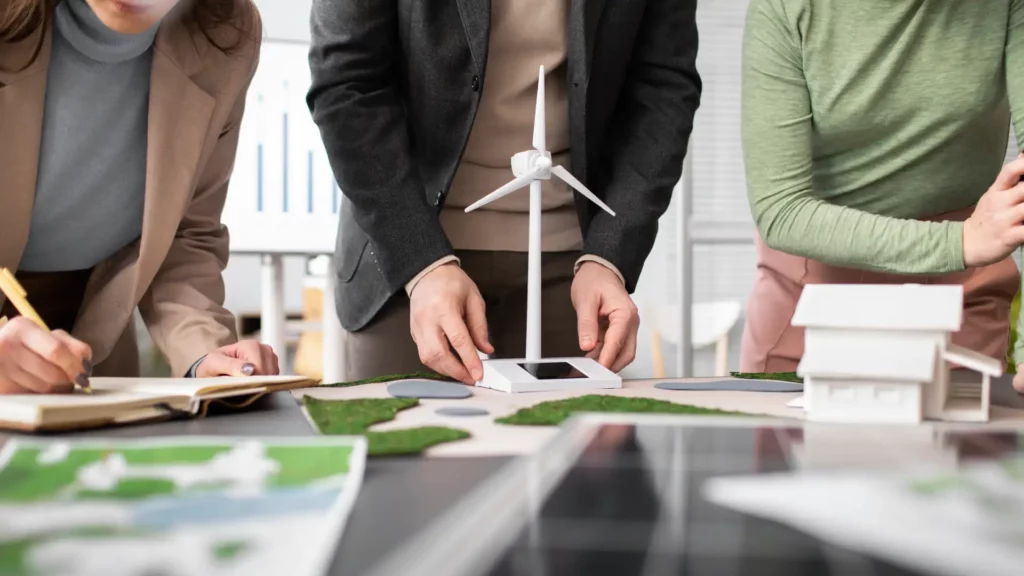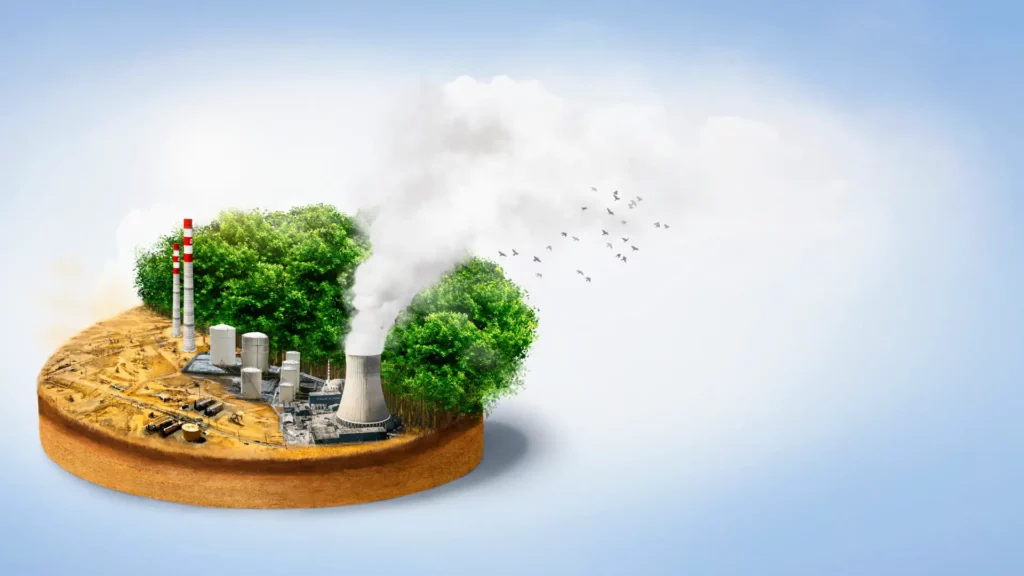What is the Carbon Capture and Storage Conference?
Carbon Capture and Storage Conferences (CCS) represent a cornerstone in the global effort to address climate change. These events are specialized gatherings designed to bring together the foremost experts, policymakers, industry leaders, and researchers in the field of CCS. The importance of carbon capture and storage conferences cannot be overstated, as they provide a unique confluence of knowledge, expertise, and innovation, all focused on tackling one of the most pressing environmental challenges of our time: reducing atmospheric carbon dioxide levels.
The Role of Carbon Capture and Storage Conference
These conferences serve multiple purposes. Primarily, they are forums for sharing the latest research and developments in CCS technologies. This includes presentations of new studies, data, and scientific breakthroughs. Additionally, carbon capture and storage conferences act as platforms for discussing policy frameworks, market trends, and environmental impacts associated with CCS. They are also vital for networking, fostering collaborations, and facilitating discussions on future directions and challenges in the field. The role of these conferences in shaping global CCS strategies is significant, as they often set the tone for policy-making and guide investment decisions in CCS technologies.

Key Themes of Carbon Capture and Storage Conference
Advanced Technologies in CCS
A significant portion of carbon capture and storage conferences is dedicated to exploring and discussing advanced technologies in CCS. This includes innovative methods for capturing CO2, whether from industrial emissions or directly from the atmosphere. Developments in capture techniques, such as absorption, adsorption, and membrane separation, are thoroughly examined. The conferences also delve into advancements in storage methods, exploring geological formations suitable for long-term CO2 storage, including depleted oil and gas fields, deep saline aquifers, and coal beds.
Policy and Regulatory Frameworks
Carbon capture and storage conferences often feature detailed discussions on policy and regulatory frameworks that are crucial for the successful implementation of CCS projects. These discussions may cover a range of topics, from international agreements and national policies to local regulations and incentives. The role of carbon pricing, emissions trading schemes, and governmental subsidies in promoting CCS adoption are frequent subjects of debate. Additionally, these conferences provide a forum to address legal and regulatory challenges, such as liability issues, property rights, and the long-term monitoring of storage sites.
Environmental and Social Considerations
Another key theme at carbon capture and storage conferences is the environmental and social impact of CCS. This includes assessing the life cycle environmental footprint of CCS projects and their potential to contribute to sustainable development goals. Social considerations, such as community engagement, public perception, and the equitable distribution of CCS benefits and risks, are also critical topics of discussion. These conferences provide a platform to debate ethical considerations, ensuring that CCS deployment does not disproportionately impact vulnerable communities or ecosystems.
Read Also Our Post On What You Need to Know Before Investing in CCS: The Pros and Cons of Carbon Capture and Storage

Opportunities for Networking and Collaboration at Carbon Capture and Storage Conferences
Professional Networking
The networking opportunities provided by carbon capture and storage conferences are unparalleled. These events gather a diverse group of stakeholders, including researchers, industry representatives, policymakers, and NGOs, creating a fertile ground for professional networking. Attendees have the chance to interact with leaders in the field, exchange ideas, and stay abreast of the latest trends and innovations.
Collaborative Ventures and Partnerships
Carbon capture and storage conferences often act as incubators for collaborative ventures and partnerships. They offer a conducive environment for initiating joint research projects, forming consortia, or establishing public-private partnerships. These collaborations can lead to significant advancements in CCS technologies, bridging the gap between research and practical implementation. Moreover, such partnerships often play a pivotal role in scaling up CCS solutions and making them more economically viable.
Future Directions and Innovations Highlighted in Carbon Capture and Storage Conferences
Exploring Emerging Trends
A vital aspect of carbon capture and storage conferences is the exploration of emerging trends and future innovations in the field. This includes discussions on novel capture technologies, such as bioenergy with carbon capture and storage (BECCS) and direct air capture (DAC). The role of digital technologies, like artificial intelligence and machine learning, in optimizing CCS processes, is another area of growing interest.
Global Impact and Scalability Challenges
The global impact and scalability of CCS technologies are central themes in these conferences. Discussions often revolve around the potential of CCS to significantly contribute to global carbon reduction targets and its integration into broader climate change mitigation strategies. Challenges related to the scalability of CCS, such as infrastructure requirements, investment needs, and public acceptance, are critically examined. The conferences also provide a platform for comparing different national approaches to CCS and identifying best practices that can be adopted globally.

Spotlight on the American Carbon Capture Utilization and Storage Forum
The American Carbon Capture Utilization and Storage Forum represents a significant event in the landscape of environmental and energy-related conferences. Specifically tailored to address the unique challenges and opportunities within the United States, this forum stands out as a crucial meeting point for professionals, experts, and stakeholders involved in the carbon capture, utilization, and storage (CCUS) sector.
The Role and Impact of the American Carbon Capture Utilization and Storage Forum
The American Carbon Capture Utilization and Storage Forum serves as a pivotal platform for discussing the latest developments, policies, and technologies in the American CCUS industry. This event is distinguished by its focus on the United States' specific regulatory, geographical, and market conditions, making it a key venue for American stakeholders in the CCUS field. The forum provides an opportunity for attendees to gain insights into the latest research, innovative technologies, and emerging trends specific to the American context.
Key themes typically covered in the American Carbon Capture Utilization and Storage Forum include the exploration of new and existing projects in the U.S., discussions on federal and state-level policies affecting the CCUS sector, and the examination of economic and commercial aspects of carbon capture and storage operations. It also places a strong emphasis on the utilization aspect of CCUS, exploring how captured carbon can be effectively used in various industries, thereby turning a waste product into a valuable commodity.
Networking and Collaborative Opportunities
The American Carbon Capture Utilization and Storage Forum is not just a venue for learning and discussion; it's also a rich environment for networking. The forum brings together a diverse array of participants from government agencies, private companies, academic institutions, and non-profit organizations. This diversity fosters an environment ripe for collaboration and partnership, enabling attendees to form connections that can lead to innovative projects and initiatives.
Driving Innovation and Policy in the U.S. CCUS Sector
An essential aspect of the American Carbon Capture Utilization and Storage Forum is its role in driving innovation and influencing policy within the U.S. CCUS sector. The forum serves as a conduit for sharing best practices, discussing regulatory challenges, and proposing solutions that align with both environmental objectives and economic realities. The insights and discussions generated at this forum often help shape policy decisions and guide the direction of technological advancements in the American CCUS landscape.
In conclusion, the American Carbon Capture Utilization and Storage Forum is a cornerstone event in the U.S. environmental sector, offering a unique and focused platform for advancing the CCUS agenda in the United States. By bringing together a wide range of stakeholders to discuss, debate, and collaborate, the forum plays a crucial role in shaping the future of carbon capture, utilization, and storage in America.
See Also Our Post On Green Roofs: How They Can Help You Save Energy and Reduce Your Carbon Footprint

Highlights of the Carbon Capture and Storage Conference 2022
The Carbon Capture and Storage Conference 2022 marked a significant milestone in the ongoing global dialogue about climate change and carbon management strategies. This event, known for its comprehensive and forward-thinking approach, brought together some of the brightest minds and key players in the field of carbon capture and storage (CCS).
Key Takeaways from the Carbon Capture and Storage Conference 2022
During the Carbon Capture and Storage Conference 2022, a wide array of topics was covered, reflecting the diverse and evolving nature of the CCS field. The conference featured a mix of keynote speeches, panel discussions, and interactive workshops, each delving into different aspects of CCS technology, policy, and implementation.
One of the primary focuses of the Carbon Capture and Storage Conference 2022 was on technological innovation. Sessions highlighted advancements in capture technologies, improvements in storage methods, and the integration of CCS with renewable energy sources. These discussions emphasized not just the scientific and technical progress but also the practical challenges and opportunities in deploying CCS at scale.
Policy and regulation were other significant themes at the conference. Panels and talks provided insights into the evolving regulatory landscape surrounding CCS, discussing how various countries are incorporating CCS into their climate action plans. The conference also addressed the financial aspects of CCS, including funding mechanisms, investment trends, and economic feasibility.
Networking and Future Collaborations
The Carbon Capture and Storage Conference 2022 served as a prime networking venue, fostering connections between industry leaders, policymakers, researchers, and environmental advocates. The event facilitated discussions that led to collaborative projects and partnerships, underscoring the conference's role in driving the CCS agenda forward.
Looking Ahead: The Roadmap Post-Conference
An essential outcome of the Carbon Capture and Storage Conference 2022 was the development of a roadmap for future CCS initiatives. This roadmap outlines the strategies and actions needed to overcome current barriers and capitalize on opportunities in the CCS sector. It reflects a collective vision for the role of CCS in achieving global carbon reduction targets.
Check Also Our Post On Cansolv Carbon Capture: A Revolutionary Solution for Industrial Carbon Emissions Reduction

Anticipating the Carbon Capture and Storage Conference 2023
The upcoming Carbon Capture and Storage Conference 2023 is highly anticipated in the environmental and energy sectors as a pivotal event for advancing global CCS initiatives. This conference, building on the successes and learnings of previous years, is expected to set new benchmarks in the discussion and development of CCS technologies and strategies.
The Significance of the Carbon Capture and Storage Conference 2023
The Carbon Capture and Storage Conference 2023 is poised to be a groundbreaking event, bringing together a diverse mix of experts, policymakers, industry leaders, and researchers. The conference is anticipated to provide a comprehensive platform for sharing the latest advancements, debating policy implications, and showcasing innovative solutions in the field of carbon capture and storage.
One of the key objectives of the Carbon Capture and Storage Conference 2023 will be to address the challenges and opportunities that have emerged in the CCS domain over the past year. The conference is expected to present cutting-edge research, discuss advancements in capture technologies, and explore new methodologies for CO2 storage and utilization.
Networking and Collaborative Opportunities at the Carbon Capture and Storage Conference 2023
The Carbon Capture and Storage Conference 2023 will not only be a forum for knowledge exchange but also a prime opportunity for networking and establishing collaborations. It will offer a unique environment for stakeholders to connect, discuss joint ventures, and form partnerships that could lead to innovative CCS projects and initiatives.
Setting the Future Agenda for CCS
A significant outcome anticipated from the Carbon Capture and Storage Conference 2023 is the setting of a future agenda for the CCS community. This agenda will likely focus on accelerating the deployment of CCS technologies, overcoming policy and financial barriers, and exploring the integration of CCS in various industrial sectors. The conference will play a crucial role in shaping the global approach to carbon management and climate change mitigation strategies.
Exploring the Carbon Capture Utilization and Storage Conference
The Carbon Capture Utilization and Storage Conference stands as a seminal event in the environmental and energy sectors, bringing critical focus to the integrated approaches in CCS technologies. This conference is renowned for its comprehensive coverage of all aspects of carbon capture, utilization, and storage, making it an indispensable event for professionals and stakeholders in the field.
The Impact and Scope of the Carbon Capture Utilization and Storage Conference
At the heart of the Carbon Capture Utilization and Storage Conference is a commitment to advancing the global conversation and action on CCS. This event typically features a wide range of topics, including the latest advancements in carbon capture technologies, innovative approaches to carbon utilization, and effective strategies for carbon storage. The conference serves as a nexus for sharing groundbreaking research, discussing policy and regulatory frameworks, and showcasing practical applications of CCS in various industries.
One of the unique aspects of the Carbon Capture Utilization and Storage Conference is its focus on the utilization aspect of CCS. This includes exploring ways in which captured carbon can be used in creating valuable products such as chemicals, building materials, and fuels, thereby adding an economic dimension to carbon management strategies. This approach not only helps in mitigating carbon emissions but also promotes a circular economy model.
Networking and Future Collaborations at the Conference
A vital component of the Carbon Capture Utilization and Storage Conference is the opportunity it provides for networking and collaboration. The conference attracts a diverse array of participants from academia, industry, government, and non-profit sectors, facilitating rich discussions and partnerships. These interactions often lead to innovative collaborations, policy developments, and advancements in CCS technologies.
Setting the Agenda for Future CCS Initiatives
The Carbon Capture Utilization and Storage Conference is also instrumental in setting the agenda for future CCS initiatives. The event provides a platform for stakeholders to identify challenges, discuss solutions, and set priorities for research, development, and deployment in the CCS field. The insights and outcomes from the conference are critical in shaping the direction of CCS technologies and strategies globally.
Spotlight on the American Carbon Capture Utilization and Storage Forum
The American Carbon Capture Utilization and Storage Forum represents a significant event in the landscape of environmental and energy-related conferences. Specifically tailored to address the unique challenges and opportunities within the United States, this forum stands out as a crucial meeting point for professionals, experts, and stakeholders involved in the carbon capture, utilization, and storage (CCUS) sector.
The Role and Impact of the American Carbon Capture Utilization and Storage Forum
The American Carbon Capture Utilization and Storage Forum serves as a pivotal platform for discussing the latest developments, policies, and technologies in the American CCUS industry. This event is distinguished by its focus on the United States' specific regulatory, geographical, and market conditions, making it a key venue for American stakeholders in the CCUS field. The forum provides an opportunity for attendees to gain insights into the latest research, innovative technologies, and emerging trends specific to the American context.
Key themes typically covered in the American Carbon Capture Utilization and Storage Forum include the exploration of new and existing projects in the U.S., discussions on federal and state-level policies affecting the CCUS sector, and the examination of economic and commercial aspects of carbon capture and storage operations. It also places a strong emphasis on the utilization aspect of CCUS, exploring how captured carbon can be effectively used in various industries, thereby turning a waste product into a valuable commodity.
Networking and Collaborative Opportunities
The American Carbon Capture Utilization and Storage Forum is not just a venue for learning and discussion; it's also a rich environment for networking. The forum brings together a diverse array of participants from government agencies, private companies, academic institutions, and non-profit organizations. This diversity fosters an environment ripe for collaboration and partnership, enabling attendees to form connections that can lead to innovative projects and initiatives.
Driving Innovation and Policy in the U.S. CCUS Sector
An essential aspect of the American Carbon Capture Utilization and Storage Forum is its role in driving innovation and influencing policy within the U.S. CCUS sector. The forum serves as a conduit for sharing best practices, discussing regulatory challenges, and proposing solutions that align with both environmental objectives and economic realities. The insights and discussions generated at this forum often help shape policy decisions and guide the direction of technological advancements in the American CCUS landscape.
In conclusion, the American Carbon Capture Utilization and Storage Forum is a cornerstone event in the U.S. environmental sector, offering a unique and focused platform for advancing the CCUS agenda in the United States. By bringing together a wide range of stakeholders to discuss, debate, and collaborate, the forum plays a crucial role in shaping the future of carbon capture, utilization, and storage in America.
Conclusion: The Indispensable Role of Carbon Capture and Storage Conferences in Climate Change Mitigation
In conclusion, carbon capture and storage conferences play an indispensable role in advancing the field of CCS. These events are not just platforms for sharing knowledge and fostering collaboration; they are catalysts for action in the fight against climate change. By bringing together diverse stakeholders and focusing on a wide range of topics from technological advancements to policy and social considerations, these conferences contribute significantly to the development and deployment of CCS solutions worldwide. As the urgency to address climate change intensifies, the importance of carbon capture and storage conferences in shaping our global response becomes increasingly critical.
Sources:

